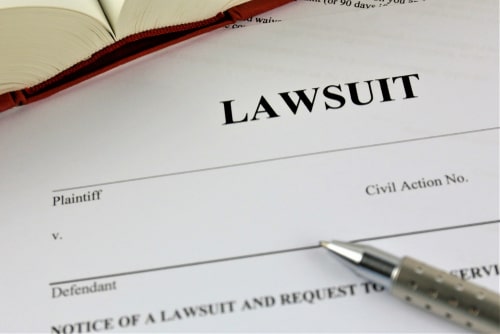What Does “Negligence” Mean in an Illinois Personal Injury Claim?
 If you or a loved one have been hurt due to the carelessness or misconduct of another party, you may have questions about what it takes to win a personal injury claim and collect compensation. A personal injury claim may allow an injured individual to recover compensation for medical bills related to the incident, ongoing medical costs, pain and suffering, property damage, lost wages, and more. Most personal injury lawsuits hinge upon whether or not a party acted negligently.
If you or a loved one have been hurt due to the carelessness or misconduct of another party, you may have questions about what it takes to win a personal injury claim and collect compensation. A personal injury claim may allow an injured individual to recover compensation for medical bills related to the incident, ongoing medical costs, pain and suffering, property damage, lost wages, and more. Most personal injury lawsuits hinge upon whether or not a party acted negligently.
Understanding the Legal Definition of Negligence
Although the word “negligence” is often used as a synonym for inattention or recklessness, the legal concept of negligence is much more precise. In order to prove that a party acted negligently, you and your attorney will need to show that four main elements are present in your case:
- Duty of Care: The defendant owed the plaintiff, or individual bringing the lawsuit, a “duty of care.” This means that the defendant had a legal obligation to act in a certain way toward the defendant. For example, a landlord has a legal obligation to keep his or her property free of preventable hazards. A store owner has an obligation to maintain a reasonably safe premise for customers. Drivers have an obligation to drive in such a way that does not present a risk of death or injury to other motorists or pedestrians.
- Breach of Duty: The defendant failed to uphold his or her duty of care.
- Causation: The defendant’s breach of duty caused the plaintiff’s injuries. There are two types of causation: cause-in-fact and proximate cause. Cause-in-fact is sometimes called “but-for” causation, meaning but for the defendant’s actions, the injury would not have occurred. Proximate cause means that an event was related to an injury in such a way that the court considers the event to be the cause of the injury
- Damages: The plaintiff suffered some type of injury or loss. If a person breached a duty of care but this did not result in any harm, the person may not be considered negligent. For example, if a pharmacist gave a patient the wrong medication but the patient realized the mistake before taking the medication, the patient would not have a valid personal injury claim. However, if the patient took the wrong medication and suffered serious medical complications requiring hospital treatment, the patient may have a valid injury claim.
Contact a Lake County Personal Injury Lawyer
If you or a loved one were hurt due to another party’s carelessness or recklessness, contact Salvi & Maher, L.L.C. to learn about your legal options. A personal injury claim may enable you to hold the at-fault party responsible for the wrongdoing as well as recover compensation. Call our office at 847-662-3303 and schedule a free, no-obligation consultation with one of our passionate Waukegan injury attorneys.
Source:
https://courts.illinois.gov/CircuitCourt/CivilJuryInstructions/IL_IPI_Civil.pdf
Contact a Lake County Vehicle Accident Attorney Who is Ready to Help You
If you or a member of your family has been injured in a motor vehicle accident, contact our office. Call 847-662-3303 to set up a free initial consultation at one of our four convenient locations. There is no risk because we only collect fees if you collect compensation. With offices in Libertyville, Waukegan, Richmond, and Chicago, we represent clients in Lake County, Cook County, DuPage County, and McHenry County.












